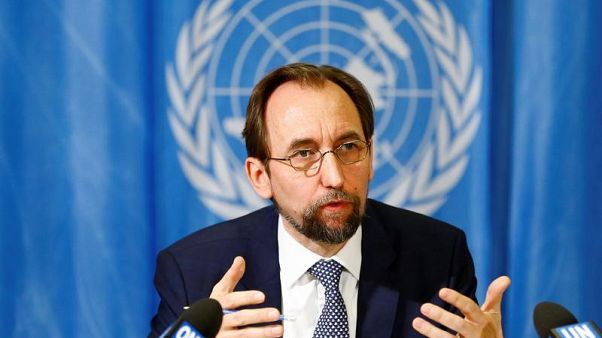 The United Nations human rights chief says he will ask Ethiopia’s government to allow his agency investigate rights abuses during months of unrest in 2015 and 2016 in which hundreds of people were killed.
The United Nations human rights chief says he will ask Ethiopia’s government to allow his agency investigate rights abuses during months of unrest in 2015 and 2016 in which hundreds of people were killed.
Speaking to journalists during a three-day visit, U.N. High Commissioner for Human Rights Zeid Ra’ad Al Hussein said there was a clear need for a much wider and freer civic space in Ethiopia.
The country declared six months of emergency rule in October and then extended it by four months after more than a year of violent protests in its Oromiya and Amhara regions.
Last month, a government-sanctioned investigation said 669 people had been killed in the violence.



